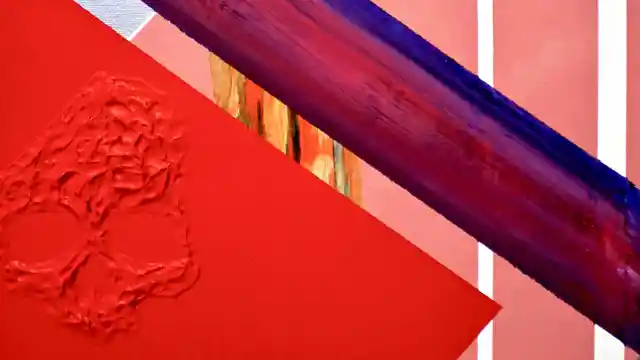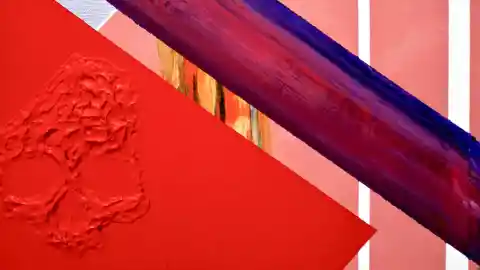

Wasalu Muhammad Jaco, better known as his rap alter-ego Lupe Fiasco, has been hard at work on his fifth album since early 2013. After what seemed to be multiple reworks and singles that didn’t make the album – including his song “Old School Love” with Ed Sheeran – Tetsuo & Youth is finally here. And the hard work is paid off. The level of artistry and thought put into this project is very apparent through its sixteen tracks.
Tetsuo & Youth is split into four “seasons.” The first track is titled “Summer.” It is an instrumental with the sounds of children running around, laughing, and jumping into a pool. It’s a beautiful opener that stimulates emotion. The second track, “Mural,” is close to nine minutes of straight rapping. There is no hook on this song, only Lupe spitting his impressive lyrics. This track truly shows his talent as a rapper. “Blur My Hands” follows, with Guy Sebastian’s hook opening the track. Sebastian and Fiasco have other collaborations, including Fiasco’s 2012 single “Battle Scars.” Lupe has three verses, each separated by Sebastian’s crooning. This song is one of the weaker points of the album. The next track is the last in the “summer” portion of the album. “Dots and Lines” opens with a banjo playing, and then a new beat quickly starts along with the song’s chorus. Lupe sings a catchy melody, backed by an uncredited woman’s vocals. The song seems to be about Lupe wanting to be free from his label Atlantic Records. It’s an amazing track, complete with smart verses and a catchy hook.
The next track marks the beginning of the next part of the album, “Fall.” This instrumental is backed by the sounds of someone raking leaves, with children running around not too far away. This leads into “Prisoner 1 & 2.” It opens with an operator speaking followed by a man talking. Then the beat and rapping hit very suddenly. The beat becomes more subtle during the mesmerizing hook that features Ayesha Jaco. Halfway through the song, the hook is followed by the operator talking once again and the sound of a metal gate rising along with chanting and singing in the background. The beat changes to something brand new and the song now sounds like a completely different track. The two parts combine to create one solid track that makes for one of the strongest of the album.
On “Body of Work” you can first hear the high-pitched sound of fireworks shooting off. The haunting vocals of the hook are sung by L.A. singer Troi. Lupe raps his verses, sometimes interrupted by a woman’s voice creepily saying “I’ve always loved you” and asking “am I beautiful?” Lupe has some great bars on this track, one of my favorites being “Oedipus Rex / motherf***er this better than sex” – a reference to the famous “Oedipus the King” play by Sophocles. The song ends with more sounds of fireworks, a saxophone, and strings. Next is “Little Death,” where Lupe’s lyrics shine once again and lead into a soothing hook by Nikki Jean. She appears again on the next song, “No Scratches.” Lupe assists her on the hook, the two singing simultaneously, which works well. They sing lines relatable to those who have experienced how damaged one can become after heartbreak “So before we hit a wall / heartbreak / and it crashes / just walk away / no scratches.”
“Winter” is a creepy instrumental, backed by the sound of the blowing wind. It sounds like something that would be used in the film The Shining. The haunting distorted strings are in no way comforting, but I enjoy them. Right as this offsetting track ends, a dark, deep voice speaks – the beginning of “Chopper.” This track is the longest on the album at nine and a half minutes. It features many rappers that I’m not too familiar with: Billy Blue, Buk of Psychodrama, Problem, Trae tha Truth, Fam-Lay, and Glasses Malone. Although everyone does a good job on this track for the most part, this is my least favorite song on Tetsuo & Youth. It sounds out of place in my opinion; not fitting in with the overall feel of the album. With that being said, it is followed by one of my favorite tracks on the album, “Deliver.” It tells an eye-opening story of how pizza delivery men don’t deliver to the ghetto because they feel unsafe. The chorus chants “pizza man don’t come here no more” in between naming reasons as to why he doesn’t. Ty Dolla $ign’s impressive vocals make a few appearances on this track, although uncredited. He closes the track singing “so sad cause the pizza man don’t f*** with us no more.”
Next comes “Madonna” which is the third track featuring Nikki Jean. It is a great song with a beautiful hook and humming, well-constructed beat. The song relates to mothers raising children in the ghetto to the Virgin Mary. “Adoration of the Magi” is one of my favorites from the album. The wonderful DJ Dahi-produced instrumental suits Lupe’s verses nicely. His third verse is the best, where his lyrics and flow shine. The infectious hook, complete with vocals from Crystal Torres, is magnificent. The last song of “winter” is “They.Resurrect.Over.New,” featuring Troi on the hook and a verse from Ab-Soul, both of which do a good job. The song is a reference to the 1982 video game Tron – its title creates the acronym T.R.O.N and it opens with the sounds of a video game.
As the album closes with the interlude “Spring,” the sounds of birds chirping and children playing, the listener is left wondering just exactly what this album is trying to say. It is mysterious and grand. Tetsuo & Youth is a well thought-out, stimulating project, despite a few flaws. The deep meanings behind the songs and its artistic, intelligent sound combine to make one of Lupe’s best albums – if not his best.